Hold the vinegar
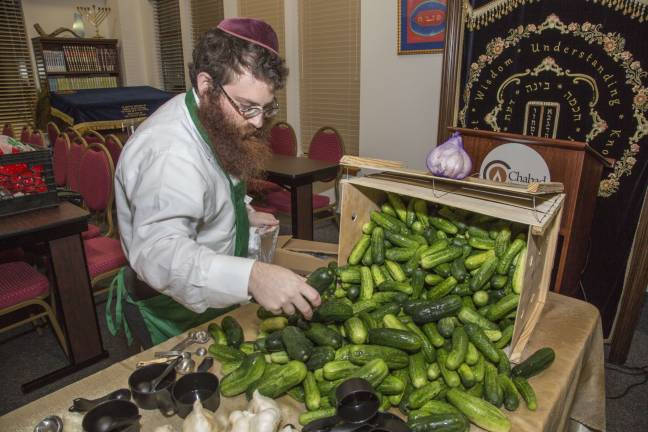
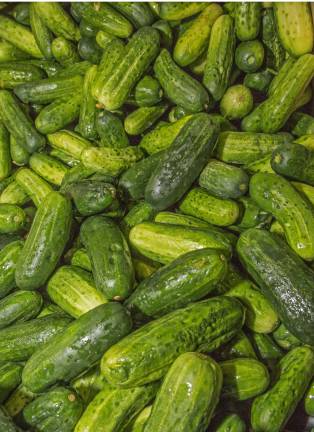
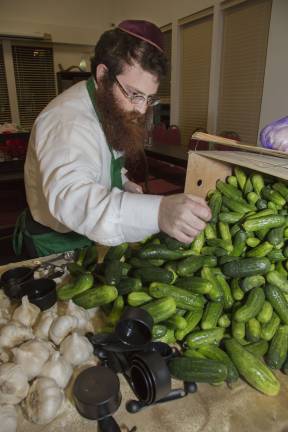
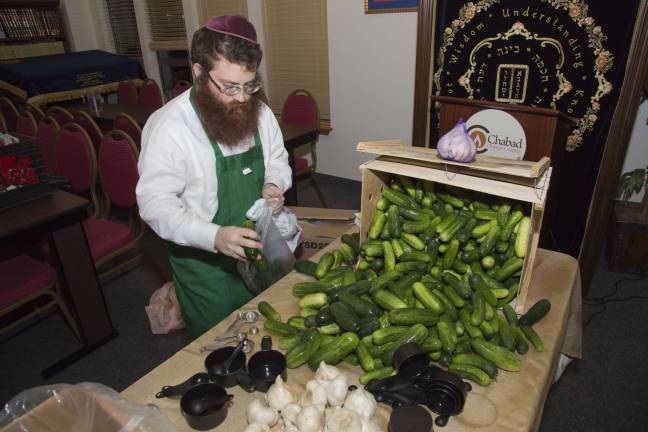
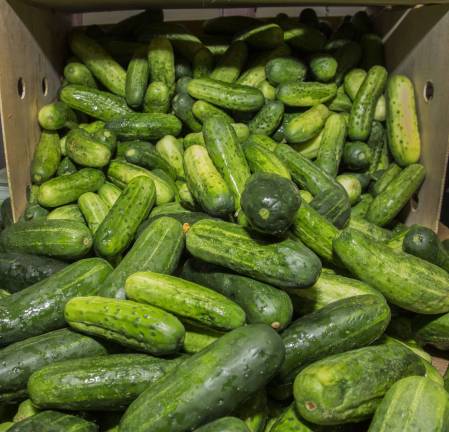
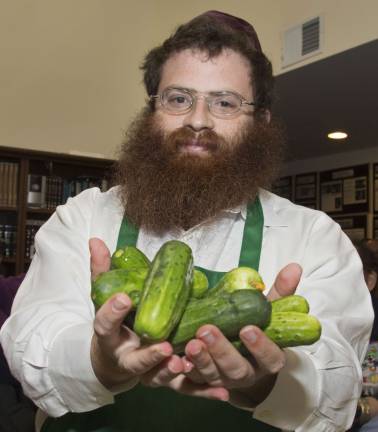
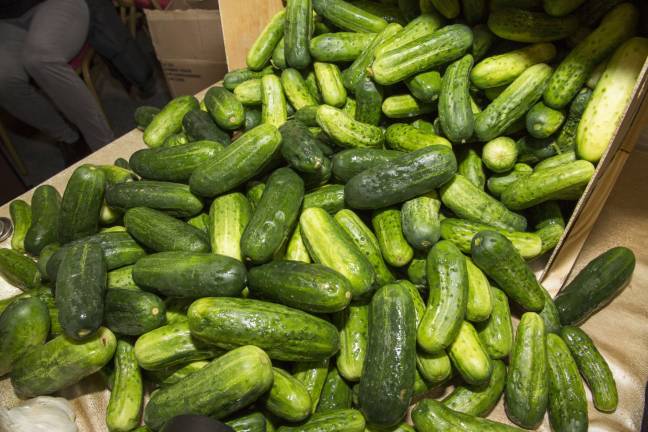
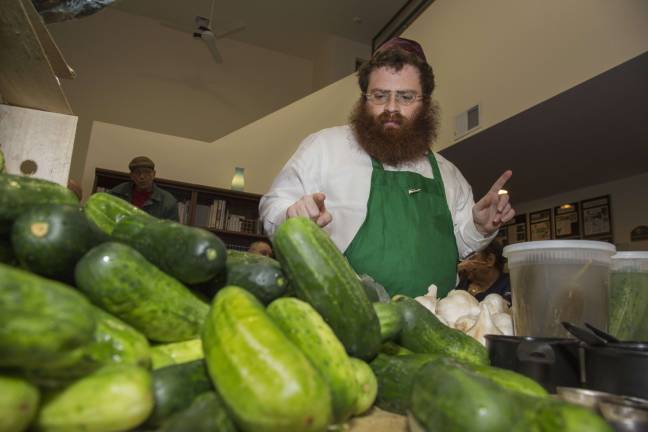
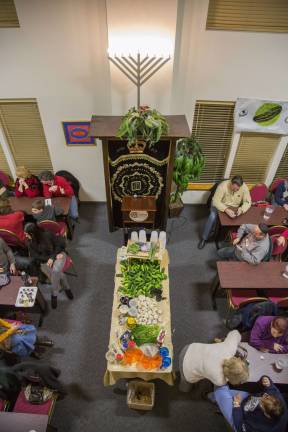
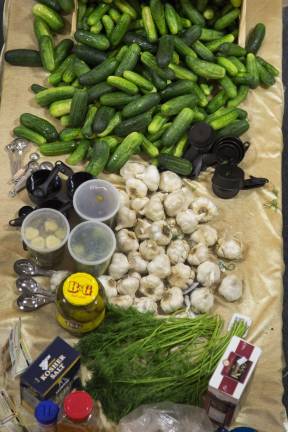
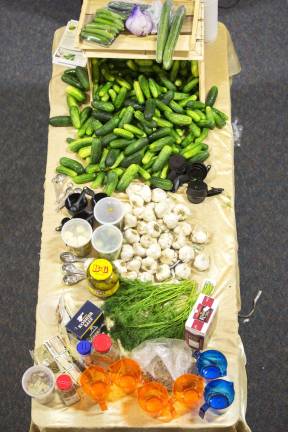
By Becca Tucker In honor of the Jewish holiday Tu B’Shevat, when the earliest blooming trees in Israel emerge from their winter sleep, “the Pickle Rabbi” hauled cucumbers from a Bronx grocer to the Orange County Chabad Center in Chester, NY to demonstrate the age-old art of pickling.
Rabbi Mendy Margolin, who hails from Virginia and now lives in Brooklyn, travels the country teaching people how to make what he calls the Lower East Side kosher pickle. About 80 people showed up, which was 10 more than the Chabad had set places for. “We managed to squeeze everyone in -- like a jar of pickles,” said Rabbi Pesach Burston, director of the Orange County Chabad.
So what makes the Lower East Side kosher pickle kosher? That’s not quite the right question to ask, since “there’s no such thing as a non-Kosher pickle,” explained Burston. Pickles, being vegetables, are always kosher.
The question, then, is what makes a LES kosher pickle special? It is made using the world’s oldest pickling method: cured only in brine, which is salt and water plus extras like dill and garlic – but no vinegar.
In Jewish cooking there’s generally not much exact measuring. The exception is brining, where the ideal ratio is four tablespoons of salt to four cups of water.
Simple as it is, pickling is no longer “common in Jewish homes, even among the highest level of kosher keeping,” said Burston. “They’re not doing their own salting.” Not yet, anyway.
“My children definitely want to,” said Burston. “We have so many fruits and vegetables in our fridge, after a few days we realize we’re not using them and they’re going to turn. Why not pickle them? It’s so easy and you can add funky spices and you can make them fun. I’m a very big fan of recycling, not just in terms of recycling garbage or things like that, but also that food doesn’t go to waste. It doesn’t have to just be cucumbers. You can pickle tomatoes, celery, asparagus, anything, really, you like.”